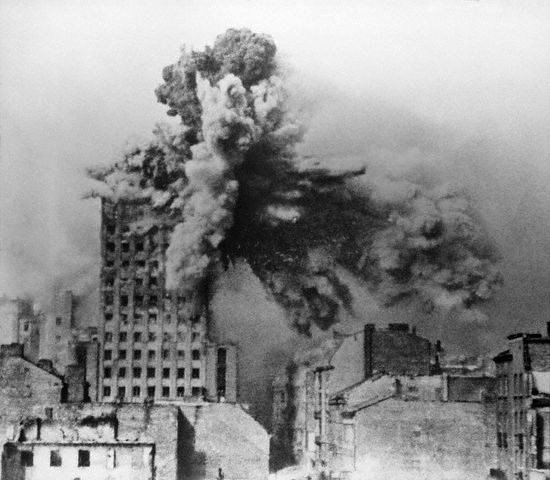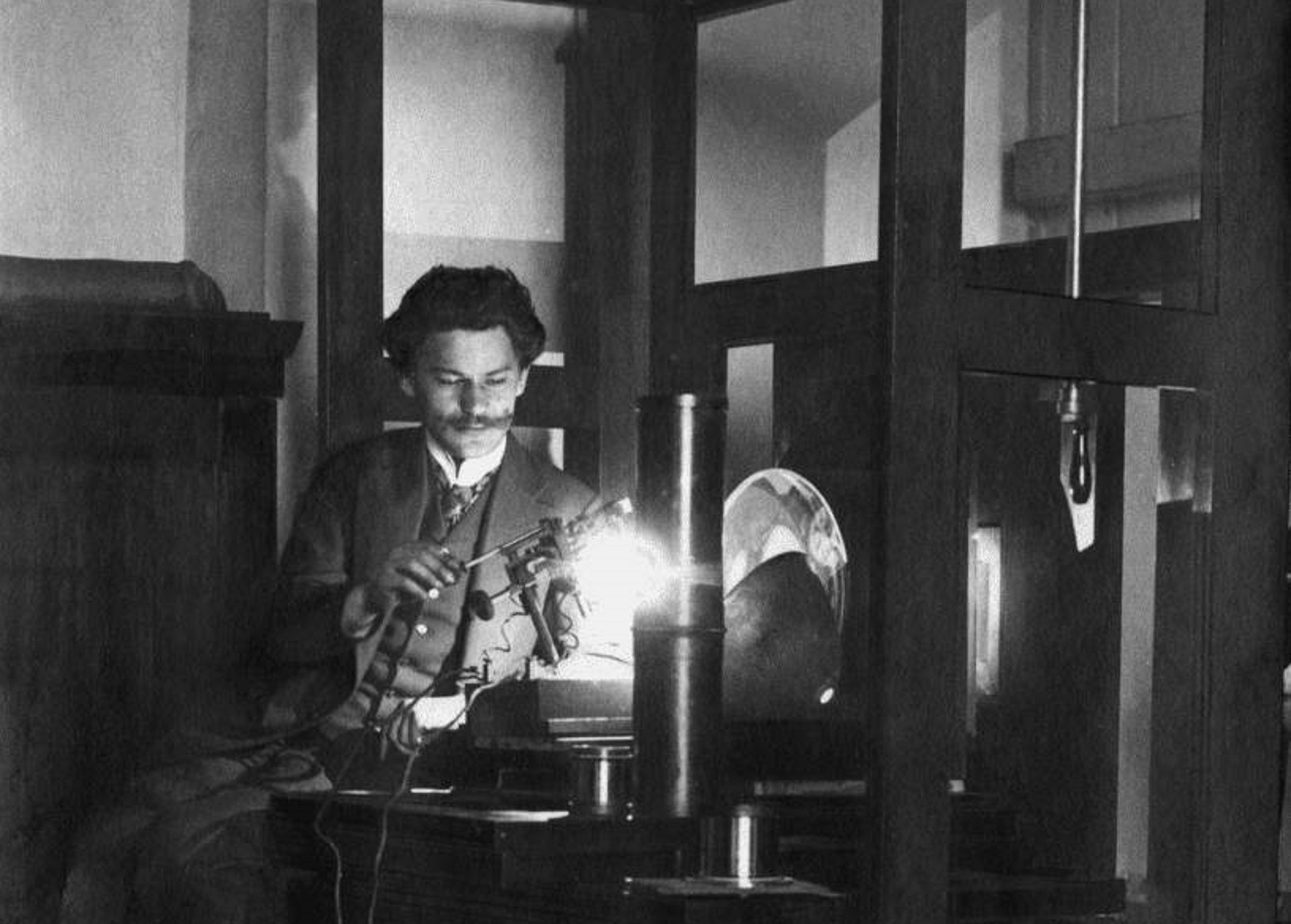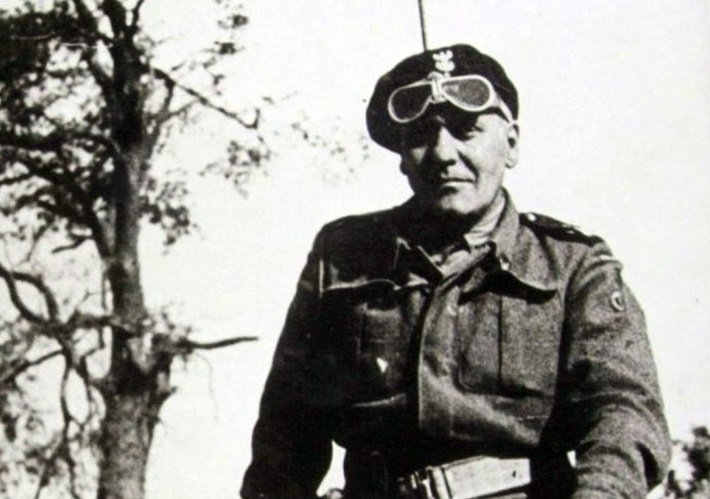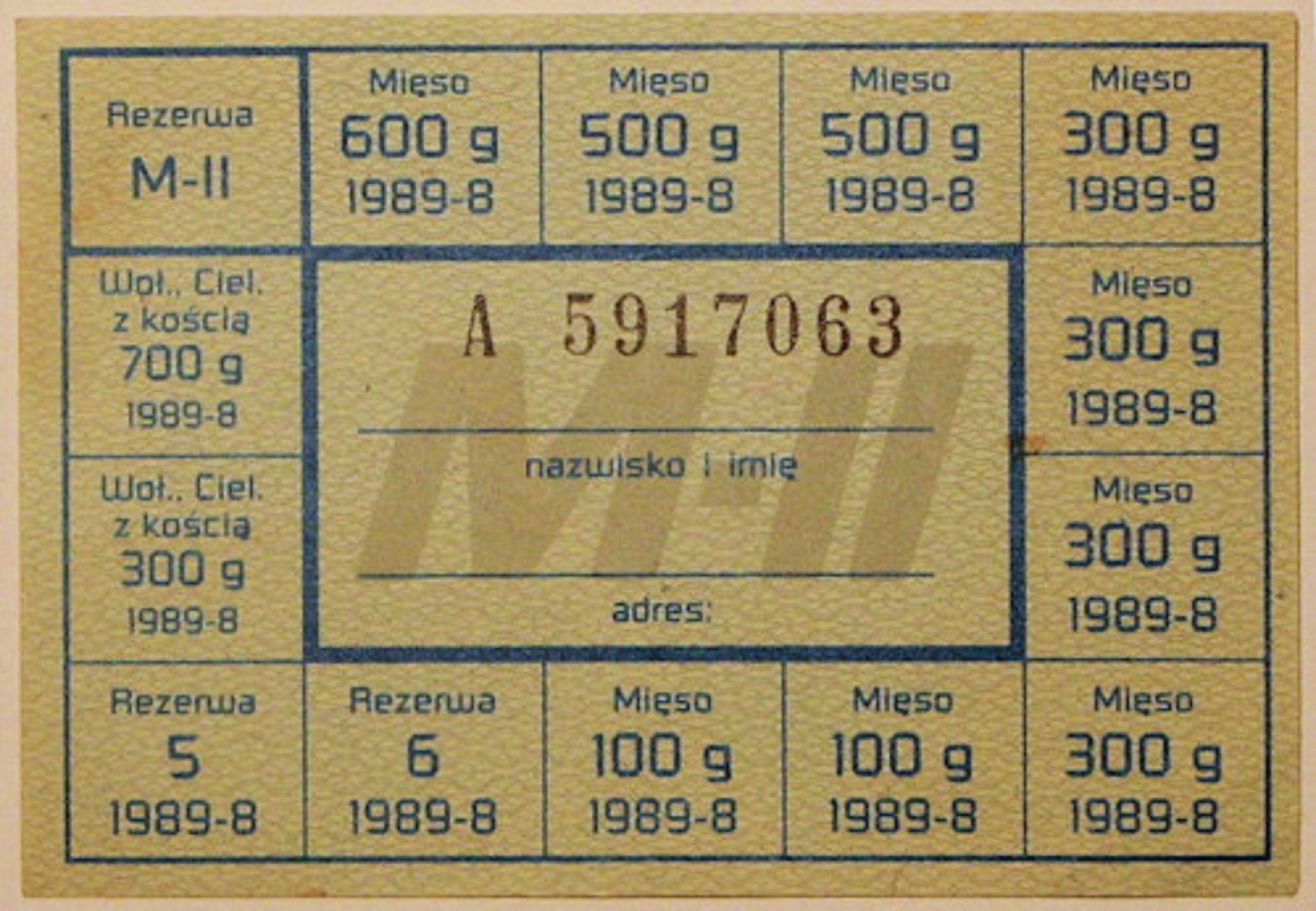“All countries come to an end at some point, even though most Europeans don’t think about it. Take Poland: it had any number of states, the Congress kingdom exists, and then it stops, the Second Republic exists, and then it stops, than you get the GG, then the People’s Republic, which also came to an end. In modern Britain we haven’t had so many changes, but Brexit could bring them”, says Norman Davies in the interview about Polish history, his autobiography and Brexit.
polishhistory: Historians usually write biographies of historical figures. Very rarely do they write something about themselves. Thus, I wanted to ask whether any book by a colleague of yours, a fellow historian, was an inspiration for you?
Norman Davies: No, I didn’t have anything like that in my head. I didn’t initiate this book. It was a publisher’s idea. It was only after some time, after I realized the work was not going very well, that I began to take an interest in how to write an autobiography. There is a section in the book about the autobiography of Frank Kermode, who is no longer alive, but he was a professor of the London University, a literary person, and he wrote this beautiful, short, laconic autobiography, which is the opposite of this book, which only shows, that I was not prepared enough.
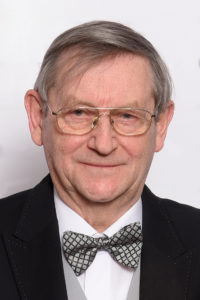
So you wrote this book to satisfy the curiosity of Polish readers?
Well, I have a good, long-standing relationship with my Polish publisher, and they advised me that a book of this sort was required. I went along with it, as I went along learning how to do it. The first idea of recording it without any structure was a very bad one. But we got there in the end. And I must say, that my memory was actually far too productive. I was churning out enormous amounts of stuff. There is probably too much of it. And that is despite the fact that the only source was my memory. I didn’t undertake any research. Once or twice I looked up documents and letters or other things. Nearly all was my own subjective thoughts. Luckily, it reads quite well.
In your autobiography you write, in the section concerning fake news and the war against it, that men are biologically wired to function in the circumstance of post-truth, where different narrations fight for the human consciousness. It is a pessimistic realization, and one that, if taken at face value would undermine the work of historians, or history as a whole, since you write that humans don’t care about the truth that much. Do you think so, or should we interpret it in some other way?
I’m quoting Youval Noah Harari on it. You know, I was writing just the other day about fake news. It’s nothing new, we can see it as one of the features of Soviet Bloc, which was dominated by fake news and very elaborate propaganda. My impression always was that they were better at it than we were. They were promoting all sorts of ideas, both about themselves and others. Free people are not as practiced at it as professional propagandists. I also have the same impression about professional history. Let’s say we write about the Second World War – the myths about it grow faster than any historian can counter.
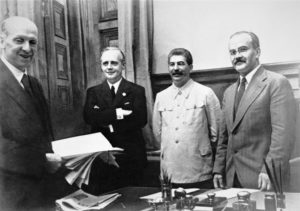
So it’s a losing fight for the historians?
Yes, a losing fight, trying to hold back the tide of myths, stereotypes and downright lies. Not all of them are the well-known old myths we just need to bring down. There are new myths in Poland arising daily, as a part of “Historical politics” or polityka historyczna. And all of this grows faster than you can control, counter or question. It is a bit pessimistic or fatalistic but that’s been my experience. It doesn’t mean however, that it is not a fight worth fighting. It’s not unjustified, and not all is lost. It requires a constant effort in trying to establish facts, truth and reasonable views. The opposition is relentless. It’s a tidal wave of guided information, which seems to be the dominant form in which people learn things. Open-mindedness, all the other things which civil society needs to operate democratically and freely are in short supply. Some historians fight for them, but sadly, they are not united in their fight. Historians don’t agree at the best of times. Because of this, in the battle against guided history it’s sometimes difficult to know who is doing what. Political regimes recruit historians to write what they want to be written.
When reminiscing about your personal development as a historian, you say that your evolution sped up when you faced more difficult themes in Polish history. Which ones of those were the most important? Which were the breakthroughs that opened your eyes the most?
It’s been a long period of learning. First time I came to Poland was in 1962. And on the second day in Warsaw, we were taken to Starówka – the old town, which had just been rebuilt. The young woman, our guide, was very reluctant to tell us about it. We said: ‘well, how was this old city destroyed?’, and she said ‘it was the war’. And we said: ‘well, of course it was the war, but what exactly? Was it bombs? Was it fighting between the Germans and the Soviets? What was it?’ and she replied: ‘just war’. And we kept pestering her until she said: ‘alright, I’ll take you into the middle of a park, and I’ll talk about it’. She told us, that she was forbidden to talk about the Warsaw Rising. She was an official guide, and she had instructions not to talk about the Warsaw Rising, by then a non-subject for obvious reasons. That was what kind of opened my eyes, and showed me, that Polish history was more complicated then it appeared.
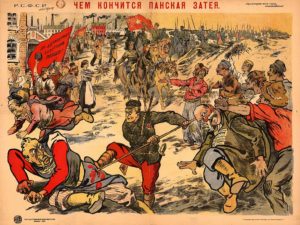
How did you follow up on that newly sparked interest ?
After some time, I became interested in war of 1919 to 1920, partly because my Polish father-in-law fought in that war and had told me stories about it. I knew that it happened, but when I opened the textbooks, there was nothing there at all, or some euphemisms about the war having taken place. These were the pointers for me to be careful about what was said concerning history. Poland in those days had a very controlled false history. I wrote a book in 1972 about the Polish-Soviet War. Not only was it unpublishable at the time. There were no reactions and no reviews in Polish newspapers and journals as well, save for one, written by Tadeusz Cieślak. He was a communist official, and had been the director of the Zakład historii stosunków polsko-radzieckich who was exiled to London for historical offenses. He refused to sign the ninth volume of Polish-Soviet official history, which was about 1939, and completely omitted the Nazi-Soviet Pact. He wrote a review of my book and it was absolutely brilliant. Of course, he had to say, that the book was terrible. The review would never have been published anywhere if he had said that it was an interesting book about 1920. So he had to write: “In chapter 1, Norman Davies writes X. This is ridiculous. In chapter 2 he maintains that Y. This is completely unacceptable. In chapter 3…”. Every chapter was “absurd”, “infantile”, “misguided”. In that way, he told the readers what was in the book, while saying it was a waste of time, and the review was published.
Didn’t this publication have some repercussions for you? Didn’t it impede your capability of traveling to Poland?
Oddly enough, it didn’t. It was the first and only book about war of 1919-1920 to have a lot of success in the west – Britain and America, partly because it was unusual. It was even used by the American government as a model for the study of military and political matters. The book was confiscated from people trying to bring it to Poland, as it was very dangerous for the communist view of history. It undermined all sorts of assumptions made by the communist regime and by the Soviets. However, in London, the Polish consul-general, who was, of course, the official of the regime, called me in, took me out to a restaurant, and said: “It is a lovely book, an important book, and as long as I’m consul, you’ll get a visa”. In other words, many people in the regime saw this book as necessary, because it was defending Poland against Soviet propaganda. The reason this book couldn’t be in circulation was that the Red Army was beaten. Officially you couldn’t talk about that, the Red Army was always victorious. And here, a little Poland beat up the Red Army. Even Polish communists, of whom, by the way, very few were actual believers, wanted the basic truth to be known.
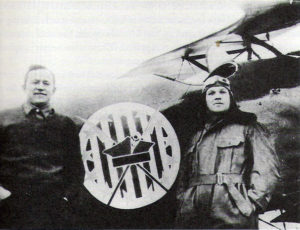
In that book, there was also a small mention of the fate of the pre-war Polish communist party – the KPP, whose leaders were murdered by Stalin. Most Poles will tell you about Katyń, but very few bother to tell you about the fate of Polish communists. Yet, this consul had noticed it, and he was pleased, that somebody has signaled this important event for them. If you can imagine belonging to the communist party in Poland, whose leaders had been murdered by their so-called friends, they were in a horrible position. I think my book was officially condemned and ignored, but unofficially was quite well received. I never had any serious problems receiving a visa right up to the end of communism.
As you said, your first visit to Poland happened in 1962. It wasn’t easy to write, or even read on the more controversial subjects in Polish history then. How did you find sources, information and interpretations of history that were not officially sanctioned?
It was a matter of detective work. Actually, in the 1970s and 80s, a historian was in a much better position to work in London than here in Poland, even on Polish matters. I remember going to the Archiwum akt nowych [the archives for modern records] and asking about the files from 1920, and they told me there weren’t any. It was a hopeless job here. However in London, there were quite a lot of books about modern history, written by émigré Poles. So, there were Polish books about 1920, and there was information available. Those books were pretty unsatisfactory however. They were written by Poles, on Polish material and from a Polish point of view. Nobody bothered to study the Soviet side. My book, White Eagle, Red Star was the first book ever which looked at both sides of the war. Another interesting thing was that the head of the Red Army in 1920 was Trotsky, who shortly thereafter became a non-person. If you went to Moscow in 1975 and asked to read Trotsky, they would tell you, there is no such thing. All the stuff written by Trotsky or Tuchachevsky about 1920, and they wrote a number of books on the subject, was published in Russia in the 1920s. Then, in the 1930s Stalin removed them all, so you couldn’t learn anything in Moscow. However, they were all in the library of the British Museum. Thus, I could learn about these events better in London, than I would in Warsaw or in Moscow. As a historian from abroad I was lucky to have better access to information than here.
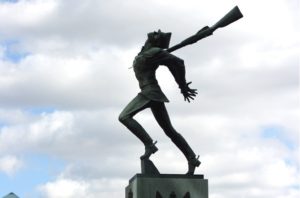
When you were working on this book, weren’t there language problems? You have mentioned polish books written by Poles for Poles.
My Polish was actually quite good by then. I had lived in Kraków for three years, I could read, speak and write in Polish. And in those days my Russian was even better than my Polish. So no, I didn’t have any language problems.
If you were to encourage other researchers to conduct their research on Poland, how would you do it? What would you say as a pioneer?
I would say that it is a very interesting and complicated history, and not many know about it. If you studied the Third Reich as a young historian, you would find that fifty other people were doing the same. If you study Polish history, you’ll be one of two, maybe three people. It is a much better position to be in. If you produce something holding up to a good standard, it will be published and it will be discussed. So, that’s what I would tell them.
Because of the language problems?
Because of the language problems and problems with access. If my aim was to study France and Italy, I could simply get on a train and go to Paris and spend a week in the sunshine. Coming here, to Poland, was uncomfortable, required visa proceedings, and many difficulties with travel. Even simply driving from England to Poland through Eastern Germany was challenging, even physically – they would stop your car and make you wash it. Or you would be called in, and asked questions, or they would fine you for something. Life on this side of the Iron Curtain was just uncomfortable for westerners. We could take the example of my colleague, Peter Raina, who is an Indian. He tried to write a book about Gomułka, but was expelled and thrown out of Poland. He never completed his study. He went on to live and work in West Berlin. Thirty years later he discovered that his Polish wife was an agent of the UB, and was reporting on him every day. He even wrote a book about it called Bliski Szpieg. When you are aware of these things, you see that being a foreign historian in Poland was rather uncomfortable.
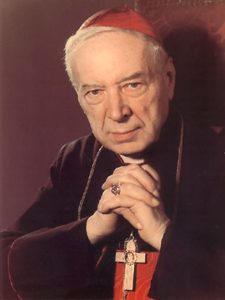
I see. Well, the accessibility has improved by now, but what about other things? Are there more books, is the source material readily available? Is it easier to be a historian?
Well, the source material is a completely different story now, because of the internet. There are enormous amounts of things that are available. However archives are a bit different matter. When I wrote a book about the Warsaw Rising, in the beginning of this century, I realized, that I should go to Moscow and try to find the information in the Soviet archives. After all, the Red Army was a big part of what happened, being on the other side of the river. I found some things, and others I didn’t. You still can’t go to the Russian archives and say: “give me all the files on August 1944”. You have to tell them your subject, and they will then decide on the files they want to show you. You have to wait for weeks, and all sorts of delays happen. In effect, a foreign historian needs help from sympathetic Russians. I was lucky to receive it, but despite all that, I couldn’t get access to the files of the Soviet Praesidium which might explain Stalin’s critical decision not to support the rising. Part of every nation’s history is in other nations’ archives, and in this case they happen to be Russian, which makes them rather unreliable. There is still much to be discovered.
From your perspective – an insider and outsider of Polish matters, do you find any particularities of Polish history, like a Sonderweg.
Every country’s history is a Sonderweg. Polish development is also quite specific. I did write a book, Serce Europy, which is about long-term traditions in Polish history. A good example would be the ideology of Dmowski and the Polish National Party, which is still very much alive. A lot of people in the West don’t realize that when the communists came in 1945, they adopted Dmowski’s views in many ways. Poland was transformed and artificially made an ethnically homogenous country which determines its character to this day. This had nothing to do with communism at all. The ideas upholding the PRL were all mixtures of left-wing and right-wing. The nationalist tradition was very influential in Poland and remains so to this day. Historically, Gomułka was particularly known for this. He was present in the Ukraine in the 1930’s during the collectivization and saw the mass-murder of millions there at first-hand. He reacted against the Bolshevik ideology. After 1956, he tried to establish a regime which would be nationalist, communist, and autonomous from Russia at the same time. To some extent he succeeded. I’m sure, if you look at the history of other countries of the Soviet Bloc you’d see some similarities, but in different proportions. Poland was the country which secured the greatest amount of autonomy of any of them, and remained like that until the end of the Soviet period. Which is, by the way, a thing that very few Poles understand today. Even the political parties of today inherit much of the tradition of pre-war nationalism, consciously or not.
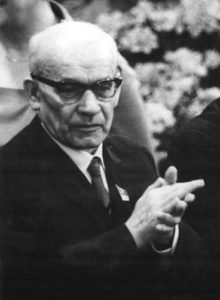
Brexit serves as a point of departure for your book. It shows that history has no end, and that interesting things will keep happening. From your perspective, as an experienced historian, does any common-sensical historical wisdom like the Marxist “history repeats itself first as a tragedy then as a farce” have any merit?
Well, they certainly have merit as a way of beginning to think about problems, even if you reject them in the end. I don’t think much about the future, I always try to resist that, but it is obvious that unexpected events will continue to happen. Brexit is a very interesting case, in the way that when you follow it the situation changes day by day. Whatever happens, historians will divide it into different periods and so on, but today we couldn’t do it, as the situation is changing too rapidly. The uncertainty of today is very striking. It will be a major topic for historians who will write books on it. Perhaps there will be a book about the last days of the United Kingdom, as I think Brexit could break up our country. God knows what will happen, but Northern Ireland could join the south, Scotland could hold their second independence referendum and win this time. That, however, is normal. All countries come to an end at some point, even though most Europeans don’t think about it. Take Poland: it had any number of states, the Congress kingdom exists, and then it stops, the Second Republic exists, and then it stops, than you get the GG, then the People’s Republic, which also came to an end. In modern Britain we haven’t had so many changes, but Brexit could bring them. It’s very sad, but what can you do?
Interviewer: Jan Malesza

